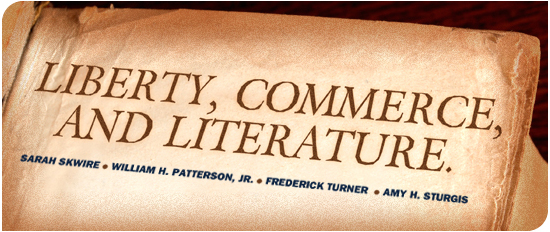
I’m finally getting around to writing about two short stories published late last year that were written by libertarian authors. Both are works of literary fiction.
One of the stories is by our very own Allen Mendenhall. “Communitas” was published in the online quarterly magazine of literary fiction, Full of Crow, in October 2011. You can read it online in full for free. The story is set in Okmulgee, Oklahoma and is told from the point of view of a nameless old man obsessing over a lost… loved one? It strikes me as a rather bleak tale about the modern breakdown of identity, social relationships, and moral decency.
Allen is a multi-talented writer, attorney, editor, and teacher. Visit his website to learn more about him. Also, check out his interview with Jeffrey Tucker.
The other story, “Pretty Citadel,” is by Kerry Howley and was published in The Paris Review, also an online quarterly magazine of literary fiction, in the Fall 2011 issue, No. 198. The first four paragraphs of the story can be read online for free, but you’ll have to purchase the issue for $12 in order to read it in full.

“Pretty Citadel” is set in Burma, in a local newspaper office, and is told from the point of view of a woman (I assume) who works there. Her boss talks of revolution, though it’s not clear it’s the political kind. There’s mention of most everything besides the newspaper being banned — it being an exception because it is censored before publication by a government bureaucrat — and of politically incorrect people being disappeared. I like the way the brief glimpses into the workings of the totalitarian Burmese regime are casually interspersed between cynical descriptions of Burma and the POV character’s work. But that’s about all I can tell you about this story, as I’m not about to pony up $12 for one short story, however good it may be.
Kerry Howley is a former editor of a Burmese newspaper (which would help explain the story’s setting, I suppose) and a senior editor of Defunct: A Literary Repository for the Ages. You may already know her from her work as a contributing editor for Reason Magazine as well as some tv news appearances. Visit Kerry’s website to learn more about her and for links to some of her articles online.
~*~
This post is the first in a new series in which we will highlight new and recent fiction publications by libertarian authors. If you think there are any we might have missed, please do let us know. If you’re interested in reviewing any of these stories, contact me.
Help Promote Prometheus Unbound by Sharing this Post


















